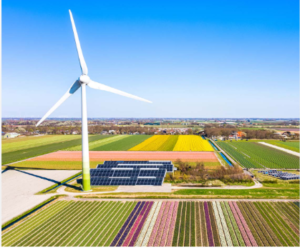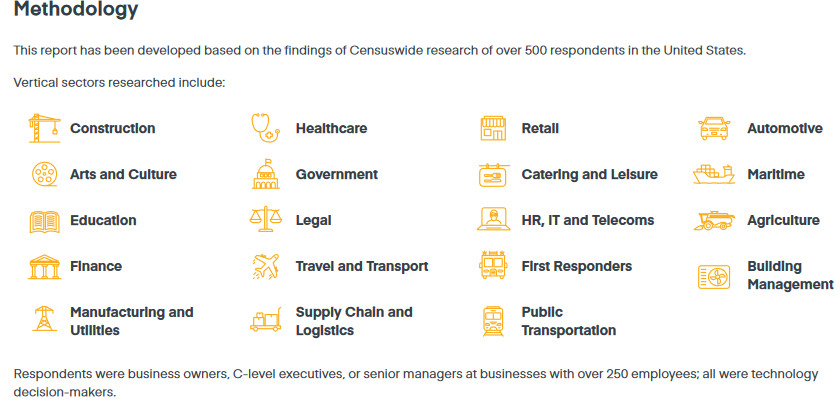THE STATE OF CONNECTIVITY IN THE UNITED STATES
Connectivity has become vital for businesses and society. As witnessed by the accelerated changes since the offset of the global pandemic, connectivity has enabled business leaders to adapt and innovate at a time of great need. Whether to enable a remote workforce, power remote learning for students, or support the massive deployment of COVID testing and vaccination centers across the U.S.
To withstand unexpected changes, move forward with sustainability projects, and eliminate disparities in access to information and education, connectivity will continue to prove to be a key requirement for today’s volatile environment. In the U.S., legislation like the Bipartisan Infrastructure
Bill will pave the way for connecting more Americans, give businesses more opportunities to accomplish their goals and ultimately address larger societal challenges such as the digital divide.
There are three major trends business decision makers are looking to address through improved connectivity in the United States:
Business resilience
Good connectivity will make organizations more resilient to unexpected changes and able to
adapt to the volatility of today’s environment.
Sustainability
Executives and business decision makers view wireless connectivity as a more sustainable alternative to fiber and are considering alternatives, such as IoT, to make their business more energy efficient.
Addressing the digital divide
Connectivity remains a barrier for solving the digital divide — specifically with developing the skills required
for the modern economy, medical innovation, and education.
Our Partners has surveyed business leaders in the United States to uncover the potential connectivity has to support business objectives, outline the benefits that improved connectivity can bring, and how businesses are prioritizing connectivity.
Business resiliency — navigating volatility 
Over the last several years, businesses have learned to adapt to changing and unexpected business conditions, from a global pandemic to supply chain disruptions that impacted practically every industry. Volatile markets and workforce disruptions continue to challenge organizations, to streamline business processes, and even reinvent business models to respond to these changes.
Connectivity has played a key role in building business resilience; business decision makers agree, and it is something they plan to prioritize in the months ahead.
54% of C-level executives plan to increase connectivity investments in the face of economic uncertainty
96% of C-suite level executives agree that good connectivity would make their company more resilient to unexpected changes.
63% of respondents estimate better connectivity could have a financial impact of $10M or more
Sustainability — meeting energy goals
Sustainability is at the top of the agenda for executives and business decision makers. The approaches vary in scope and impact. From zero carbon footprint commitments, to making the supply chain sustainable in order to meet the increasing demand of consumers for sustainable sourced and produced products, as well as overall product innovation and business practices.
One thing is clear, business leaders view wireless connectivity as a more sustainable alternative to fiber. In addition, they are considering alternatives, such as IoT, to make their business more energy efficient. To meet the sustainability agenda leaders are turning to improved cellular connectivity.
More than 93% of C-Level survey respondents plan to deploy more IoT devices to meet energy efficient goals
62% of those surveyed say poor connectivity held back sustainability projects in the last 12 months
90% of C-Level executives view wireless connectivity as a more sustainable alternative to fiber
Digital divide — narrowing the gap 
Connectivity plays a pivotal role in addressing the digital divide and bringing access to education, information, services ultimately providing a level playing field and opportunities for underserved communities. Furthermore, addressing the digital divide will also support the development of skills required for the modern economy
90% agree that access to connectivity is essential to developing the skills required for the modern economy.
90% of respondents believe that free connectivity will eliminate disparities in access to education, information and resources.
75% of respondents agree that rural areas are being negatively impacted by lack of connectivity when it comes to medical innovation. Contact Us


